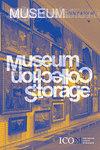La Casa Del Museo:处于非殖民化批评边缘的博物馆外联项目
IF 0.4
4区 艺术学
0 ART
引用次数: 0
摘要
本文介绍了博物馆之家实验项目的一些实践及其长期成果。该项目体现了国家Antropoloía博物馆(MNA)的各种专业人员在非殖民化批评兴起之际,为重新考虑该机构在社会中的作用而进行的探索。它还允许重新考虑博物馆的经验和行动,以重新想象博物馆在后殖民世界中的作用。1972年至1980年间,该项目在巴里奥斯开展了一项外联计划,巴里奥斯(当时)位于墨西哥城郊区。它是对20世纪60年代博物馆部门正在进行的一系列讨论的实际回应,这些讨论质疑分散在世界各地的现代博物馆是殖民主义的遗产。所实施的行动表明,对于通常被排除在文化参与之外的群体,博物馆工作的新理念和假设的构建和探索。首先,我回顾了20世纪最后25年关于博物馆在社会中的作用的一些关键辩论,以分析博物馆之家的产生背景。然后,我根据整体/综合博物馆的假设定义了其实践的关键要素,因为它旨在“实现其动态”。接下来,我将讨论该项目的长期影响,即“共振”。本文章由计算机程序翻译,如有差异,请以英文原文为准。
La Casa Del Museo: A Museum Outreach Project at the Outset of Decolonial Criticism
Abstract This article presents some of the practices of the experimental project La Casa del Museo and their long-term results. This project exemplifies the exploration undertaken by various professionals at the Museo Nacional de Antropología (MNA) to reconsider the role of that institution in relation to society, coinciding with the rise of decolonial criticism. It also allows for a reconsideration of museum experiences and actions to reimagine the role of museums in a postcolonial world. Between 1972 and 1980 the project operated an outreach programme undertaken in barrios, that were (at that time) located on the outskirts of Mexico City. It arose as a practical response to the series of discussions that were ongoing within the museums sector in the 1960s, and which questioned the modern museum of the type scattered across the world as a legacy of colonialism. The implemented actions illustrate the construction and exploration of new ideas and assumptions regarding the work of museums in relation to groups normally excluded from cultural participation. To begin, I revisit some of the key debates of the last quarter of the twentieth century on the role of museums in relation to society in order to analyse the context that gave rise to La Casa del Museo. I then define the key elements of its practices with regard to the postulates of the Integral/Integrated Museum, given that it aimed to ‘implement its dynamic’. Following this, I discuss the project’s long-term effects, understood as ‘resonances’.
求助全文
通过发布文献求助,成功后即可免费获取论文全文。
去求助
来源期刊

MUSEUM INTERNATIONAL
ART-
CiteScore
0.60
自引率
0.00%
发文量
0
期刊介绍:
In its new revised form Museum International is a forum for intellectually rigorous discussion of the ethics and practices of museums and heritage organizations. The journal aims to foster dialogue between research in the social sciences and political decision-making in a changing cultural environment. International in scope and cross-disciplinary in approach Museum International brings social-scientific information and methodology to debates around museums and heritage, and offers recommendations on national and international cultural policies.
 求助内容:
求助内容: 应助结果提醒方式:
应助结果提醒方式:


